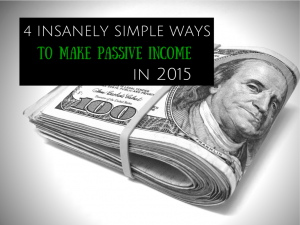A personal brand is not only important for enhancing your career, but it is also a great way to make money. Some of you may already be creating your own brand, and that’s great. Now it’s time to take it one step further.
I’ve been able to obtain new financial opportunities, both in gaining new clients for my business and receiving job offers, through my own personal brand. If this is a new concept for you, here is a quick rundown of how to create yours:
- Become an influencer in your industry. Take any opportunity you can to educate others about your experience and your field. Resources like social media platforms (LinkedIn, Twitter, Facebook) and blogging are a perfect way to do this.
- Be seen. Network, network, network. You know how they say it is all about who you know? That is partially true. The more people you know, the more opportunities you have. Connecting with people both online and offline will be key to your personal brand. Another way to prove you know your industry is by participating in local committees or groups. This is a great way to not only tell people what you know but show them.
- Be educated. Attend conferences and seminars to boost your knowledge. The more you know, the more you can share and the more you are recognized.
If you already have a lot of followers online, monetizing your personal brand should not be as difficult for you as it would for someone who is just starting out. Knowing where to start can be tough, but there are a variety of avenues from which you can choose. Here are just a few:
Offer coaching/consulting services
If you have a large online following, this may be one of the easiest ways for you to make money from your personal brand. Those individuals are staying in touch with you for a reason: you offer value to them. You can help them grow in their industry since you have been able to do it yourself. The hardest part will be pricing your services. One note and tip: Keep in mind, this is your time you are ultimately selling, so price wisely. Do not undersell or underprice yourself; you could end up doing more for less and running your mental resources dry.
Write a book
One problem with constantly sharing information online is that if you share too much, people won’t have a reason to buy from you. Sharing information is important, but you can take all the nitty gritty details and write them into a book that you can sell over and over again. Whether an e-book or hard copy, this is definitely something to look into especially if you love writing. Self-publishing tools exist online, such as Amazon’s Create Space, but you can also check for publishers locally. Another option is to write the book, copyright it and sell directly on your blog or website.
Host your own seminar or workshop
If you’ve been successful in one aspect of your industry, talk about how you did it to a group of people. Share the knowledge, and charge an entry fee. (This is valuable information afterall.) The best part is you can do this either online or in-person, whichever route works best for you. If you work at an agency, they may allow you and even encourage you to use their own space to host one (depending on company policies).
Teach classes online
In addition to hosting your own workshops, you can create your own course and sell them through sites like Udemy.com. Skillshare is another option where you can apply to teach online classes and eventually be paid to do so.
These are some great beginning points and some of the more common ways you can make money through your personal brand. Using your own brand is something you can do on the side or turn into a full-time gig. Your successes will impress employers as well and will help to set you apart from others for that dream job.
Do you have a personal brand? Have you been able to make money from it? Share you own success with me in the comments below!
Jenn Clark is a writer, PR specialist, entrepreneur, blogger and coffee enthusiast. A lover of laughter, traveling and cheese, she’s written about her life experiences here at suburbanfinance while at the same time growing other young professionals. You can find more of her work at Jennblogs.co.



